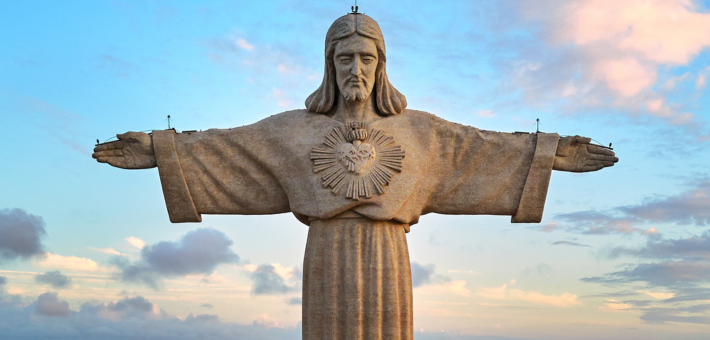Commentary on Jeremiah 23:1-6
“Then I myself will gather the remnant of my flock …, I will bring them back to their fold, and they shall be fruitful and multiply” (Jeremiah 23:3).
These words of comfort, tenderness, and hope ring out amid the woe oracle directed against the shepherds (leaders) of the people, who have scattered and destroyed the flock. They have not attended to the flock as they ought, and the Lord will intervene.
There is no place for corrupt leadership, oppression, and dishonest gain in the kingdom of God. Those who pursue their own interests, those who turn a blind eye to the plight of the weak, those who seek dishonest gain or profit through unethical means, were all called out in Jeremiah 22, the chapter preceding our lectionary text. God’s ethical demands are a concern throughout the prophetic corpus. The prophets make clear that justice and righteousness must be practiced within God’s community at all levels of society.
In Jeremiah 23, the Lord places the responsibility of social disintegration and the fall of the nation on its leaders. Since they have failed, the Lord will do the work of a shepherd among God’s people. God becomes the subject of various verbs, such as “gather,” “bring back,” and “raise up.” The people have always belonged to God, but here, God claims specific ownership over them with regard to the work of rescue and redemption that God will also undertake. They are described as “my people” and “my flock” in relation to God.
The word “remnant” is also used to apply to the people of God. “Remnant” in the prophetic tradition speaks both of suffering and of hope. A remnant, being a portion of a greater part, hints at the suffering the people had gone through and the loss of population the nation had suffered. Only a remnant survived the Babylonian exile.
On the other hand, their survival is a sign of God’s faithfulness. God preserves a remnant in the face of Babylonian destruction and promises that this remnant will return to the land and multiply. In Isaiah 37:31, it is promised that the remnant will take root downward and bear fruit upward. Having weathered a season of suffering, the remnant will be brought home and will once again grow and be fruitful. Despite human failure, there is a promise of restoration.
The proclamation that the remnant will be “fruitful and multiply” in verse 3 hints at the Edenic conditions to which the Lord will restore the people. There they shall no longer fear, nor be dismayed, and none shall be missing (verse 4). The Lord pays attention to every single person of the flock.
Having suffered at the hands of human leadership, both in Judah and at the hands of the Babylonians, it is comforting, healing, and empowering to know that God would take on the task of gathering and bringing God’s people home. Though shepherds in the past have failed, God will again oversee and raise good shepherds for the people (verse 4).
The prophetic voice moves on to speak of a further future in verse 5. In that day and in that land, the Lord will raise up for David a righteous branch. Since this text is assigned to Christ the King Sunday, it is natural to connect the righteous Branch of David with the person of Christ when we read verses 5–6. In Jeremiah’s time, however, the expectation and hope were for the reinstatement of the Davidic throne. It was hoped that a king who would rule wisely, justly, and righteously would come from the Davidic lineage.
Historically, the restoration of the Davidic monarchy did not come to pass. Zerubbabel, a descendant of David (a grandson of King Jehoiachin), returned to Judah during the reign of Cyrus of Persia and was made the provincial governor of Judah. The temple was rebuilt under Zerubbabel’s leadership (the foundations were laid in 535 BCE, and work was completed in 515 BCE). Though the Judeans enjoyed some degree of autonomy during the restoration period, the land and the people remained part of the Persian Empire.
In time, the righteous Branch of David was interpreted to refer to the ideal and perfect reign of the coming Messiah.
For similar communities suffering at the hands of ill leadership today, this text gives us hope that the righteous Branch of David will spring up and bring about the just and righteous kingdom of God in a time to come.
Try as they might, human leaders rarely meet the prophetic expectations of justice and righteousness. Poor and unjust leadership continues to cause upheaval and various degrees of social disintegration in our world today. Thus, we wait in hope for the rule of the righteous Branch who will stand in stark contrast to the leadership of Jeremiah’s time. When that day comes, justice and righteousness will be executed in the land, and we will live in a rightly ordered world where we can flourish, be safe, and be fruitful.
While we wait, we would do well to emulate the leadership of the righteous Branch. Justice and righteousness are not a choice, but a part of our character and identity. While we wait for the ideal King, we are agents and participants in God’s kingdom. Despite our imperfections, we are called to attend to issues in our communities that are within our spheres of influence, that require the kind of justice and righteousness the Lord demands of us who are God’s people.
One should also be mindful of communities that are currently powerless in the face of egregious injustices, oppression, or violence. Righteous people can do all that is humanly possible, but at times, oppressors appear to have the upper hand. The Lord’s intervention may not be apparent now, but the Lord will attend to evil doings (verse 2). We can hold on to the image of God as shepherd and trust that the Lord, who is faithful and compassionate, attends also to those who have suffered losses (the remnant). Our hope for the sure and certain reign of the righteous Branch of David must continue to be a source of strength and perseverance that propels us forward.
The days are surely coming when the righteous Branch of David shall reign as king. The promises of our God are sure and certain.


November 23, 2025